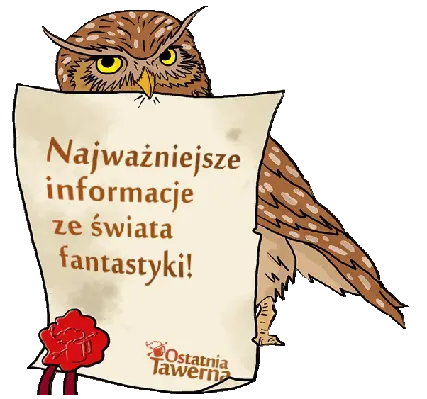Where is the earth going?
The title story is, on the one hand, the most classic science fiction in the entire collection, and on the other – a miniature masterpiece. Here Liu takes on the topics that made him recognizable: a monumental, cosmic project and its impact on society.
Humanity has turned our stable planet into one huge spacecraft to escape from the dying sun that is threatened with a great explosion. The star closest to us suddenly becomes a synonym of the greatest terror, and the more distant – a better future. He lives now beneath the surface of the earth, completely destroyed and exploited. Liu masterfully talks about how this project changes the attitude of subsequent generations to their world and other people – he writes about the breakdown of ties and the depletion of emotions, topics that also occupied him in the famous trilogy. You may know the Chinese blockbuster with the same title, inspired (very loosely) by the text of this story. He is a very average, not very original “action guy” about saving the world and has little in common with Liu’s original story.
Monumental projects are one of the science fiction horses. You can read about the next one in The Sun of China . It’s basically a very intimate story about the career of a boy from the provinces, a worker, who eventually ends up in Beijing, and then – into space. All thanks to your diligence and being nice to “weirdos”. It’s a bit of a worker’s propaganda, but written with such audacity and engineering imagination, full of love for science that I happily agree to such brainwashing.
Stories with a moral
Our future is also told by the Guardianship of God , a very Confucian vision of first contact. This story is described in a style reminiscent of a Buddhist anecdote, as are several other texts in this collection. This form does not quite appeal to me, but Liu’s idea is so surreal that when you read it for the first time, you will be amazed and amazed.
Liu likes to experiment, but also to teach. The most original example of such a story is Góra , the story of an encounter with aliens. On the one hand, it is a story about the history of science that could be born in a world completely different from ours, but quite probable. It reminds me of Ted Chiang’s Breath . On the other hand, we have a hero struggling with a trauma or something much heavier and darker.
As you know, Liu is rather pessimistic, his morals are hardly intended to uplift souls. However, they stand out with a lot of firepower. The form of these stories is too harsh for me, too close to a classic parable or allegory. However, if you are looking for an example that this writer can create something strange and out of species, open the collection to For the Good of Humanity . This is a bit of a parody of movies about hit killers, a bit of a story of a professional with strong convictions. You will see the engineering mind in action again there – and this time precision can be terrifying.
10 faces of Liu
The Wandering Earth is a great overview of forms and ideas that we could also admire to some extent in The Problem of Three Bodies. There will be a metaphorical fairy tale, a dark and bloody plot, great cosmic projects or clashes with alien civilizations. Some of the texts you will want to come back to, others are actually only suitable to be read once because they are based on concept and (to some extent) morale. In addition to the associations with Chiang, reading will certainly evoke the spirit of Lem, although in terms of descriptions our science fiction specialist is much more pictorial and poetic. Both writers, however, have a common sensitivity to speculation and thought experiments, imagining absurd, almost possible visions of societies engulfed, from our point of view, by some collective insanity. And that’s just a different way of looking at reality.
Rebis publishes his books really professionally, although maybe this one could do with little MPs. I am very curious about the reception of Liu short forms in China. We do not even find out when and where individual stories were published, and whether the difference in form is due to the development of the writer’s style. There is also some concern that the texts were translated from English, not from the original, like the rest of Liu’s books. It’s great that we have them in our market at all. I just hope that someday there will be a sinologist who will want to deal with fantasy in this country.
Of course, Liu’s great advantage is his non-American centricity. Or maybe just playing with clichés from American pop culture, making them absurd, turning them inside out and reinterpreting them. Virtually all of his stories take place in China, even those with global ramifications. You don’t eat burgers here, you don’t drink whiskey, so if you want to go deeper into this world, fry rice, buy nori chips, burn your chilli tongue … projects now. Experienced by the cultural revolution, winning the fight against hunger, poverty and illiteracy, producing disposable plastic bags, with a history of science and education longer than the history of man in our northern lands.
* In order, surname, first name, according to Chinese custom.

